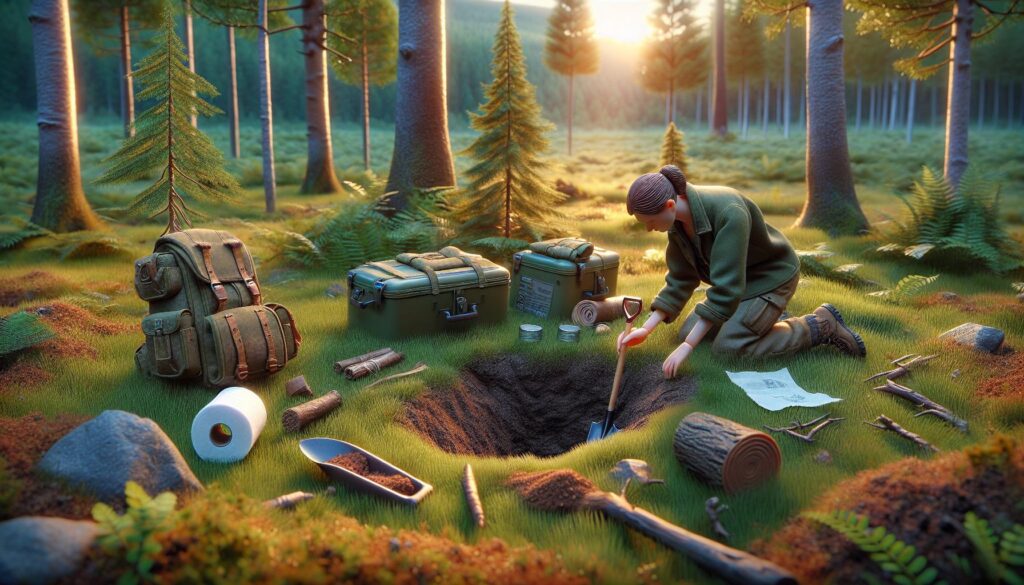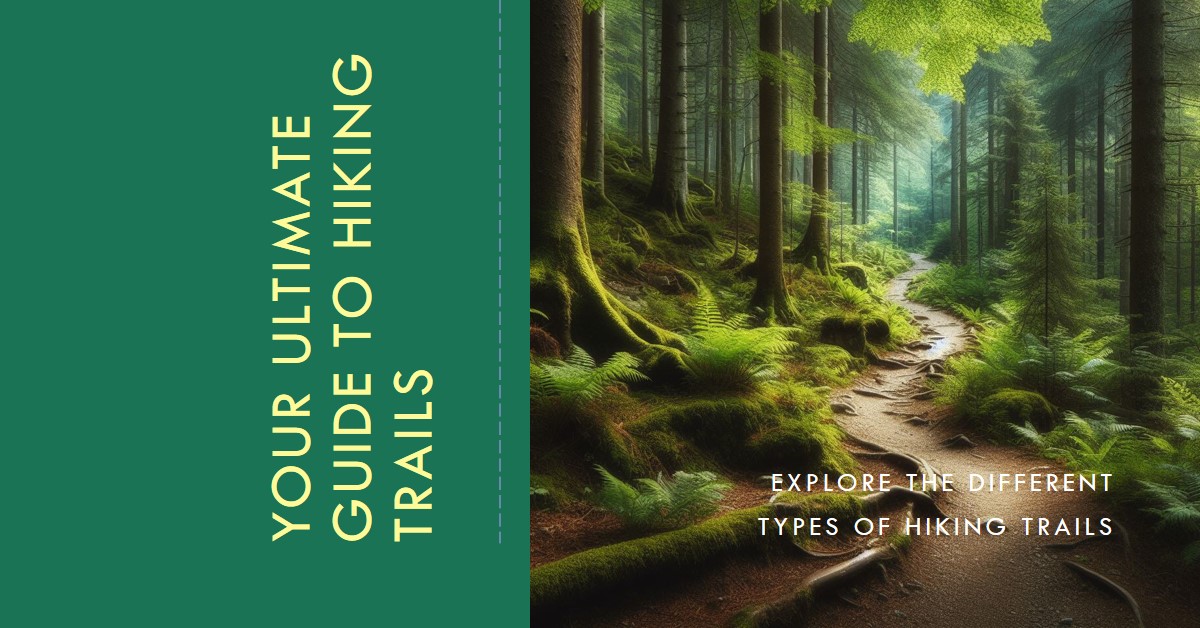Embarking on a camping adventure? Here’s a crucial tip: learn how to properly bury your poop. This might seem like a trivial matter, but it’s a vital part of maintaining the cleanliness and health of the campsite and surrounding wilderness. Plus, it’s a key principle of the Leave No Trace ethos that every responsible camper should follow.
When you’re out in the wild, far from the conveniences of modern plumbing, disposing of human waste becomes a challenge. While using designated facilities is always the best option, sometimes it’s necessary to bury your poop. This helps prevent contamination of water sources and minimizes the spread of diseases. The process is simple: find a secluded spot at least 200 feet away from water sources and campsites, dig a hole that is 6-8 inches deep using a trowel or a stick, carefully deposit the waste into the hole, cover it with soil, and pack down the area.
Table of Contents
Why Burying Your Poop Matters
Burying your poop during camping trips is not just about personal hygiene. It’s about preserving the environment and ensuring the health and safety of others. By burying your waste, you prevent potential contamination of water sources, such as rivers and lakes, which are often used for drinking and recreational purposes. This helps maintain the natural ecosystem and protects wildlife that relies on these water sources.
Moreover, burying your poop helps maintain cleanliness in camping areas. Exposed waste attracts flies and other insects, leading to unsanitary conditions. Burying it not only eliminates the odor but also helps prevent the spread of diseases and illnesses. So, remember to dig a proper hole at least 6 to 8 inches deep, away from any water sources, trails, or camping areas. Cover the waste with soil and then mark the spot with a stick or a rock.
Choosing the Right Spot to Bury Your Poop
When it comes to burying your poop, location is key. You need to choose a spot that’s far enough from water sources, trails, and campsites to prevent contamination. The spot should also be secluded to ensure privacy and minimize human disturbance. This will help maintain the wilderness experience for yourself and other campers.
The type of soil is another important factor to consider. Sandy or loamy soil is ideal as it allows for better decomposition. Avoid clay or rocky soil, as they may hinder decomposition. Once you’ve found the perfect spot and dug the hole, cover it with soil and natural materials such as leaves or sticks to further conceal and help with decomposition.
Digging the Perfect Poop Hole
When burying your poop while camping, it’s essential to dig an adequately sized hole. Here are some tips:
- Use a trowel or small shovel for digging. This allows for better control and precision.
- The hole should be around 6 to 8 inches deep to provide enough coverage and minimize the risk of contamination.
- Ensure that the hole is spacious enough to comfortably fit all waste materials.
- Be careful not to hit rocks or tree roots while digging, as they can hinder the burying process.
By following these guidelines, you can effectively bury your poop and promote a cleaner and more hygienic camping experience.
The Right Way to Bury Your Poop
Proper technique is crucial when burying your poop. Start by using biodegradable toilet paper or wiping alternatives. This ensures that the material will break down naturally over time. Next, place the waste in the hole and cover it with soil. Make sure to dig a hole at least 6-8 inches deep and 200 feet away from any water sources. Completely covering the waste with soil helps prevent any animals from digging it up. Finally, tamp down the soil and disguise the burial site. This helps maintain the aesthetics of the campsite and reduces the chances of any odors or contamination.
Essential Supplies for Burying Poop While Camping
When camping, it’s essential to have the right supplies to properly bury your poop. These include:
- Trowel or small shovel: This is necessary for digging the hole. It should be lightweight, compact, and easy to carry.
- Biodegradable toilet paper or wipes: These help reduce the environmental impact as they break down quickly when buried.
- Hand sanitizer or soap: After burying your poop, it’s crucial to maintain proper hygiene. This allows for effective handwashing, minimizing the risk of contaminating the camping area.
Mistakes to Avoid When Burying Poop While Camping
When burying poop while camping, avoid these common mistakes:
- Leaving waste exposed or improperly covered: This can lead to unpleasant odors, attraction of insects or animals, and contamination of the surrounding area. Always cover the waste completely with dirt, rocks, or organic matter.
- Burying waste too close to water sources: This can pollute the water and make it unsafe for drinking or recreational activities. Choose a location that is at least 200 feet away from any water source.
- Failing to pack out non-biodegradable items: These items, such as wipes, feminine hygiene products, and plastic wrappers, can take years to decompose and harm the environment. Always pack out these items and dispose of them properly in a designated trash bin.
Managing Odors and Wildlife Attraction
Managing odors and wildlife attraction is another important aspect of camping. Use natural odor-masking substances such as pine needles or leaves to cover up unpleasant smells. Avoid using scented products that may attract animals. Maintain a clean camping area and dispose of food scraps properly to discourage wildlife. Secure your trash in a sturdy container to prevent animals from accessing it.
| Tip 1: Use natural odor-masking substances like pine needles or leaves |
| Tip 2: Avoid scented products that may attract animals |
| Tip 3: Maintain a clean camping area to discourage wildlife |
Disposing of Toilet Paper and Hygiene Products
Proper disposal of toilet paper and hygiene products is crucial when camping. Use biodegradable toilet paper and bury it along with human waste, keeping it at least 200 feet away from water sources, and at a depth of 6 to 8 inches. This helps prevent contamination and ensures proper decomposition. Non-biodegradable items such as wet wipes should be packed out in a sealed bag and disposed of in designated waste receptacles. If no waste receptacles are available, pack out all non-biodegradable items and dispose of them properly offsite.
Spreading the Word About Proper Poop Disposal
Properly burying poop is an essential aspect of responsible camping. By educating others on the importance of this practice, we can promote a cleaner and more enjoyable camping experience for everyone. Share knowledge and tips through social media or online forums. Encourage others to follow Leave No Trace principles, which emphasize minimizing our impact on the environment. Through these efforts, we can foster a culture of respect for nature and ensure that future generations can enjoy the beauty of the great outdoors.
Frequently Asked Questions About Burying Poop While Camping
How Deep Should You Bury Poop While Camping?
Burying poop at least 6 to 8 inches deep helps prevent odor, contamination, and animal disturbances. This depth allows for proper decomposition and minimizes the risk of water contamination.
Can You Use Toilet Paper When Burying Poop?
Yes, you can use toilet paper while burying poop, but it’s important to use biodegradable toilet paper. This eco-friendly option breaks down naturally in the environment, reducing pollution and leaving no trace after decomposition.
What Is The Proper Technique For Burying Poop While Camping?
To bury poop properly, dig a small hole about 6 to 8 inches deep and at least 200 feet away from water sources, trails, and campsites. After you’ve finished, cover the hole with soil, place rocks on top, and pack out any used toilet paper.
Can You Use A Plastic Bag To Bury Poop While Camping?
Using a plastic bag to bury poop is not recommended. It is better to dig a hole and bury the waste directly in the soil. Plastic bags do not decompose quickly, and they can harm the environment and wildlife if not disposed of properly.
Conclusion
Burying poop while camping is an essential responsibility for every outdoor enthusiast. By following proper techniques and guidelines, you can minimize the impact on the environment and maintain hygiene in the wilderness. Always prioritize Leave No Trace principles and be mindful of wildlife and water sources. With these tips, you can ensure a clean and sustainable camping experience for yourself and future adventurers.














